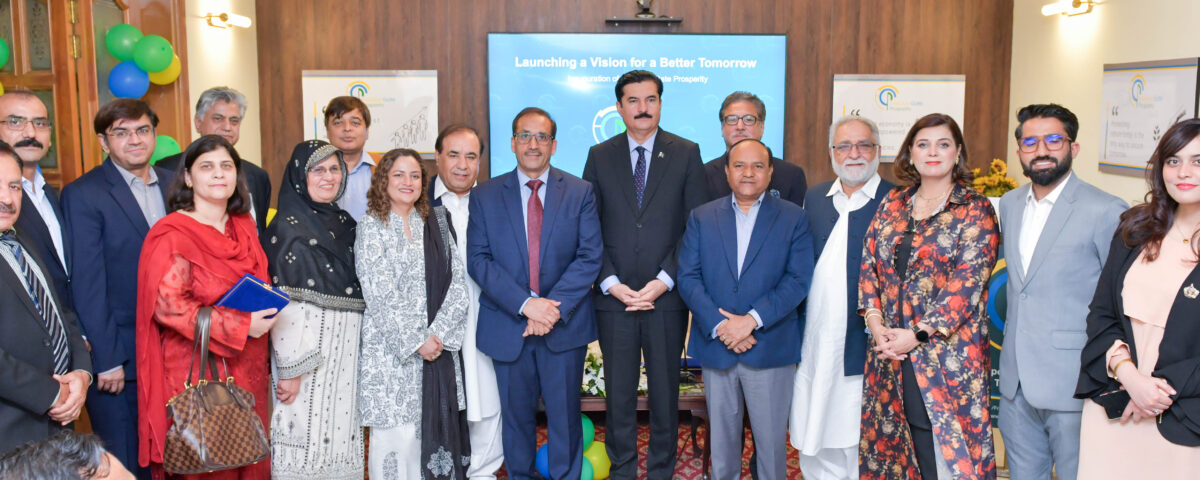
Freedom Gate Prosperity: A Journey from 1995 to the Present
March 14, 2025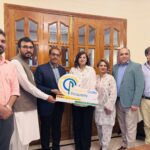
Empowering Through Insight: A Transformative Power BI Workshop at Freedom Gate Prosperity
June 27, 2025Freedom Gate Prosperity: A Vision for a Better Tomorrow
At a time when Pakistan stands at the crossroads of compounding economic, social, and climate crises, a new initiative has emerged with promise, purpose, and passion — Freedom Gate Prosperity (FGP). Launched at a dynamic event in Islamabad, FGP is being hailed as a powerful new platform that brings global vision and local solutions together to redefine development in Pakistan.
The inaugural ceremony, attended by an impressive mix of parliamentarians, former ministers, development experts, and civil society champions, set the tone for a movement rooted in inclusivity, equity, youth empowerment, and climate resilience.
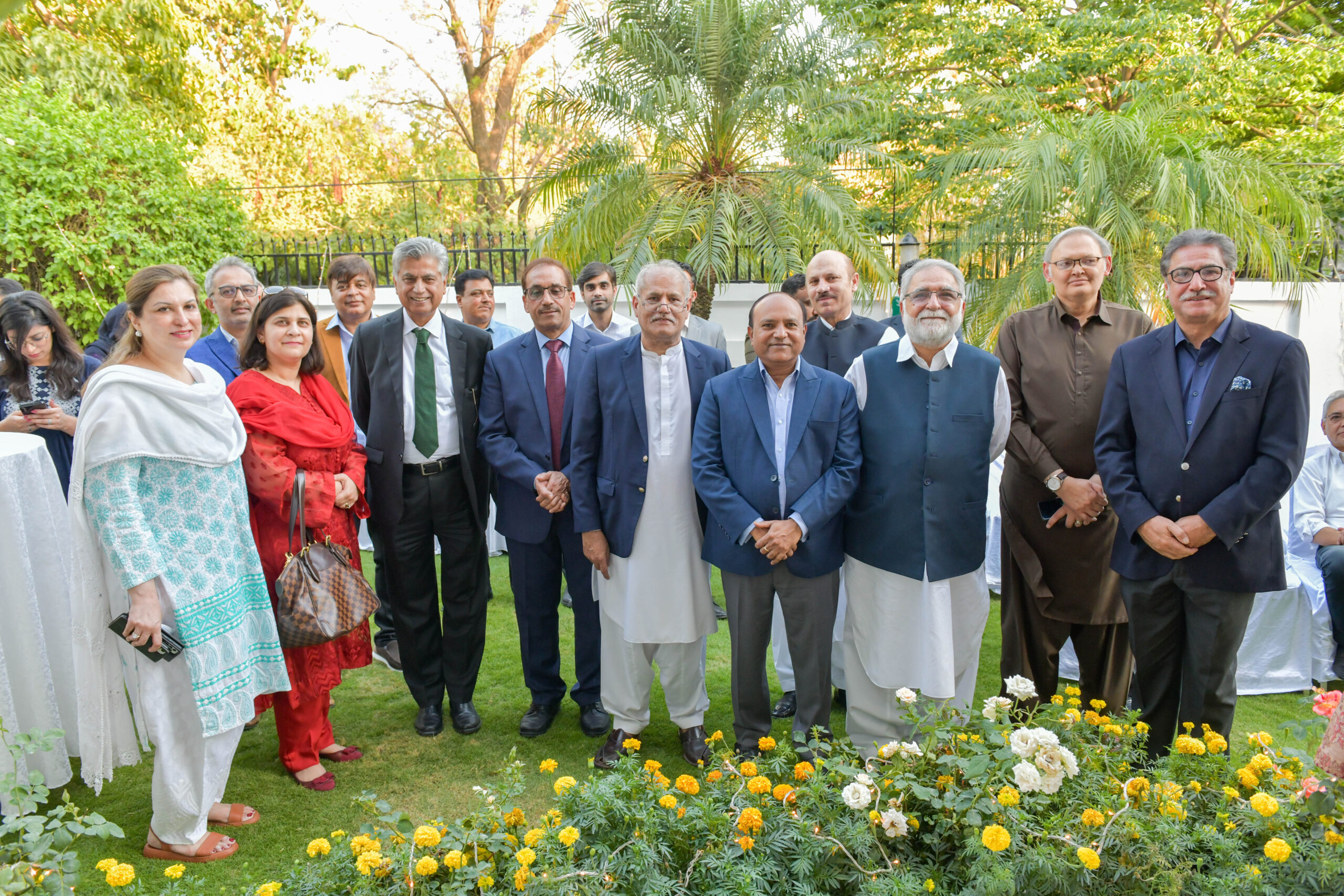
“This organization will achieve landmark successes in the years to come,” said Governor Khyber Pakhtunkhwa Mr. Faisal Karim Kundi, the Chief Guest at the event. “Its community-rooted approach, especially its commitment to working with youth is exactly what Pakistan needs right now.”
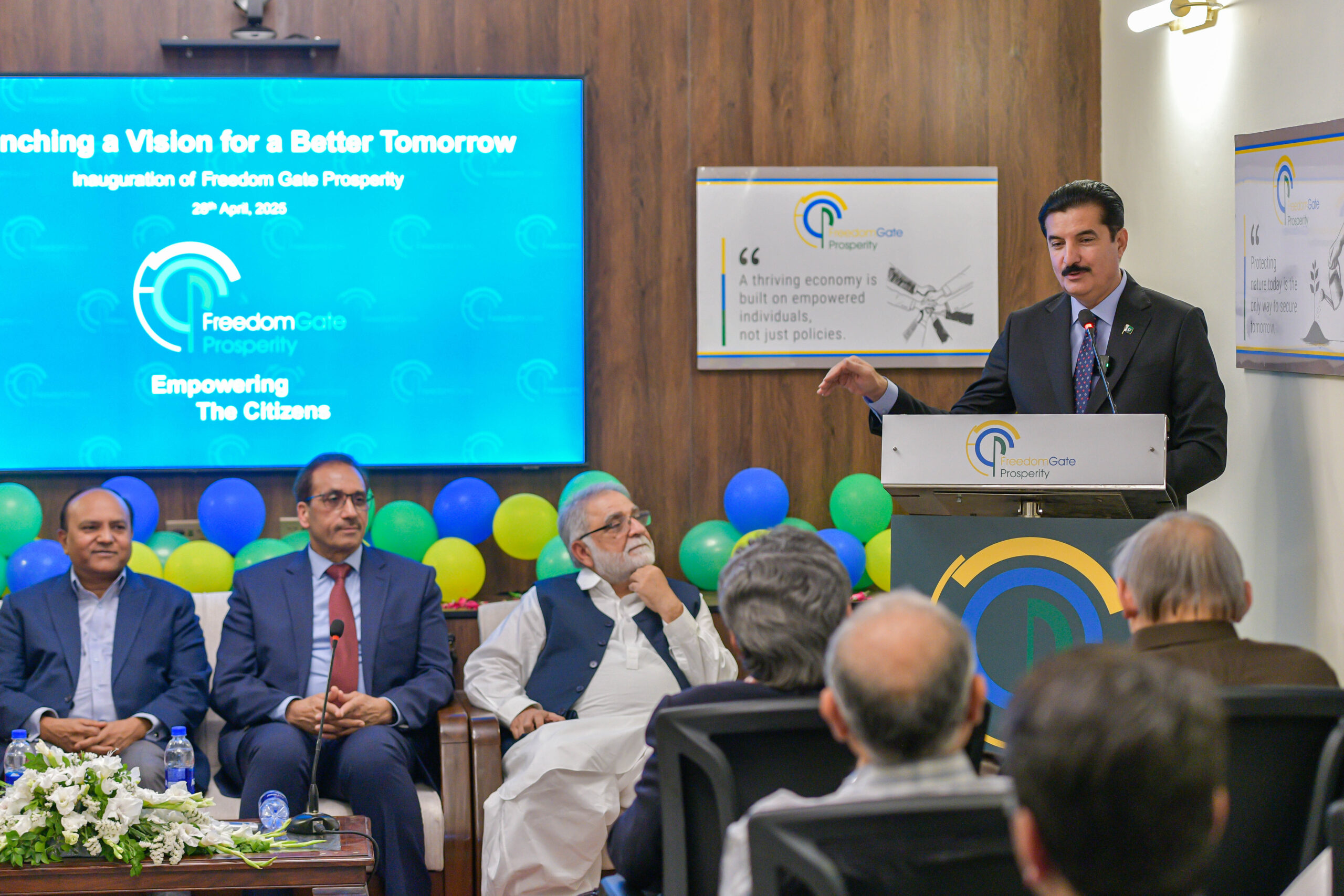
Governor Kundi further emphasized the need for organizations like FGP and it is not just launching a project, it is launching of a new era of social development in Pakistan.
FGP is the natural evolution of Freedom Gate Pakistan, now reimagined with a focused, rights-based, and homegrown agenda. Its mission is to transform development from a top-down model into a community-led, participatory process, where real voices shape real solutions.
FGP CEO Muhammad Anwar set the tone earlier by declaring: “FGP builds on the legacy of Freedom Gate Pakistan and is rooted in a strong, people-centered development philosophy. We are focusing on emerging development challenges, particularly those related to climate change, inclusive development, and youth leadership. Our mission is to create a platform where the voices of marginalized communities are amplified, and rights-based, community-anchored solutions are brought forward,” he said.
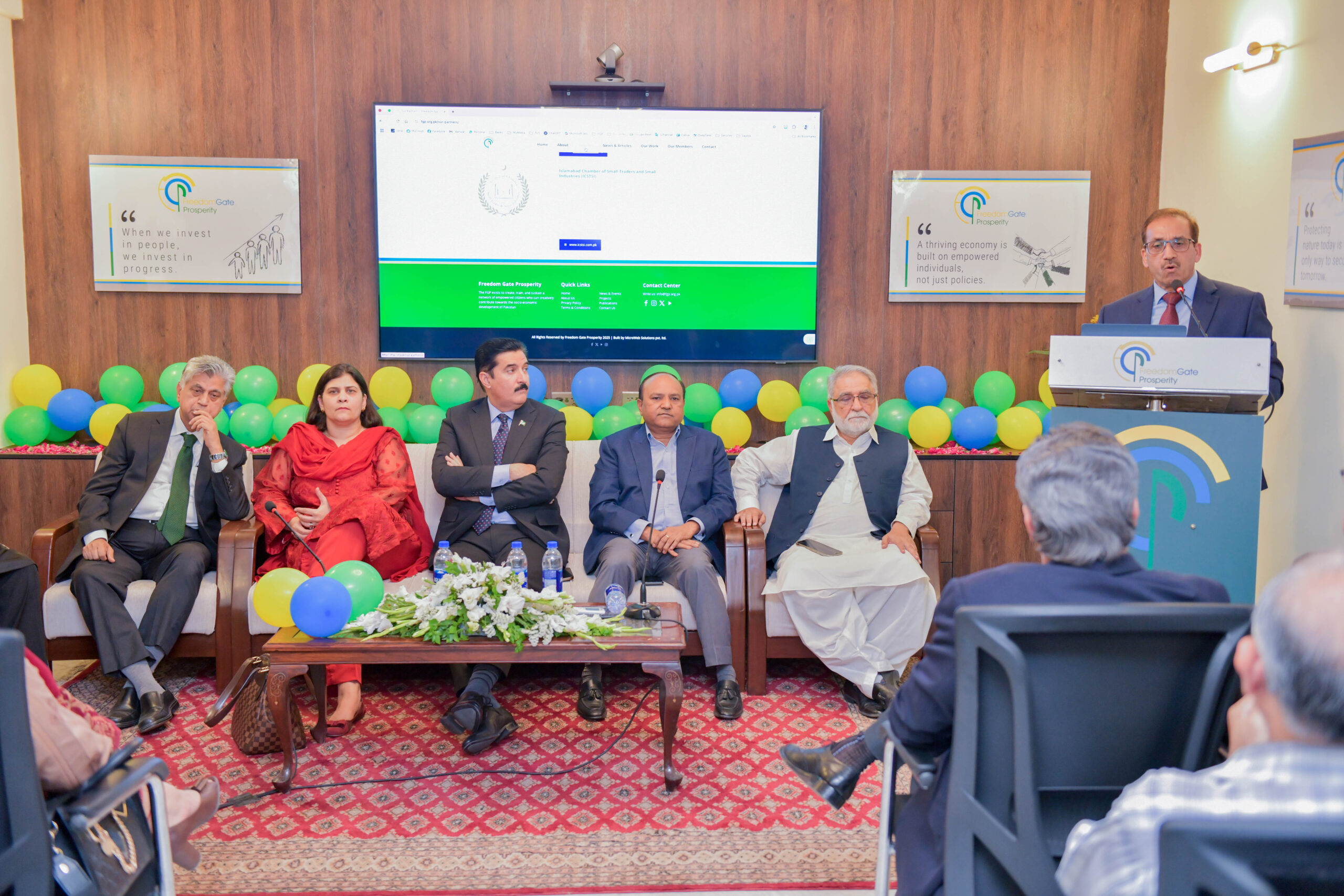
As the program unfolded, speaker after speaker reaffirmed FGP’s relevance in today’s Pakistan.
Former Federal Minister Murtaza Solangi cautioned against ignoring climate realities:
“Pakistan is on the frontlines of climate change, and we need urgent, community-driven action. FGP’s role as a connector of people and policies could prove crucial in tackling both awareness and adaptation challenges.”
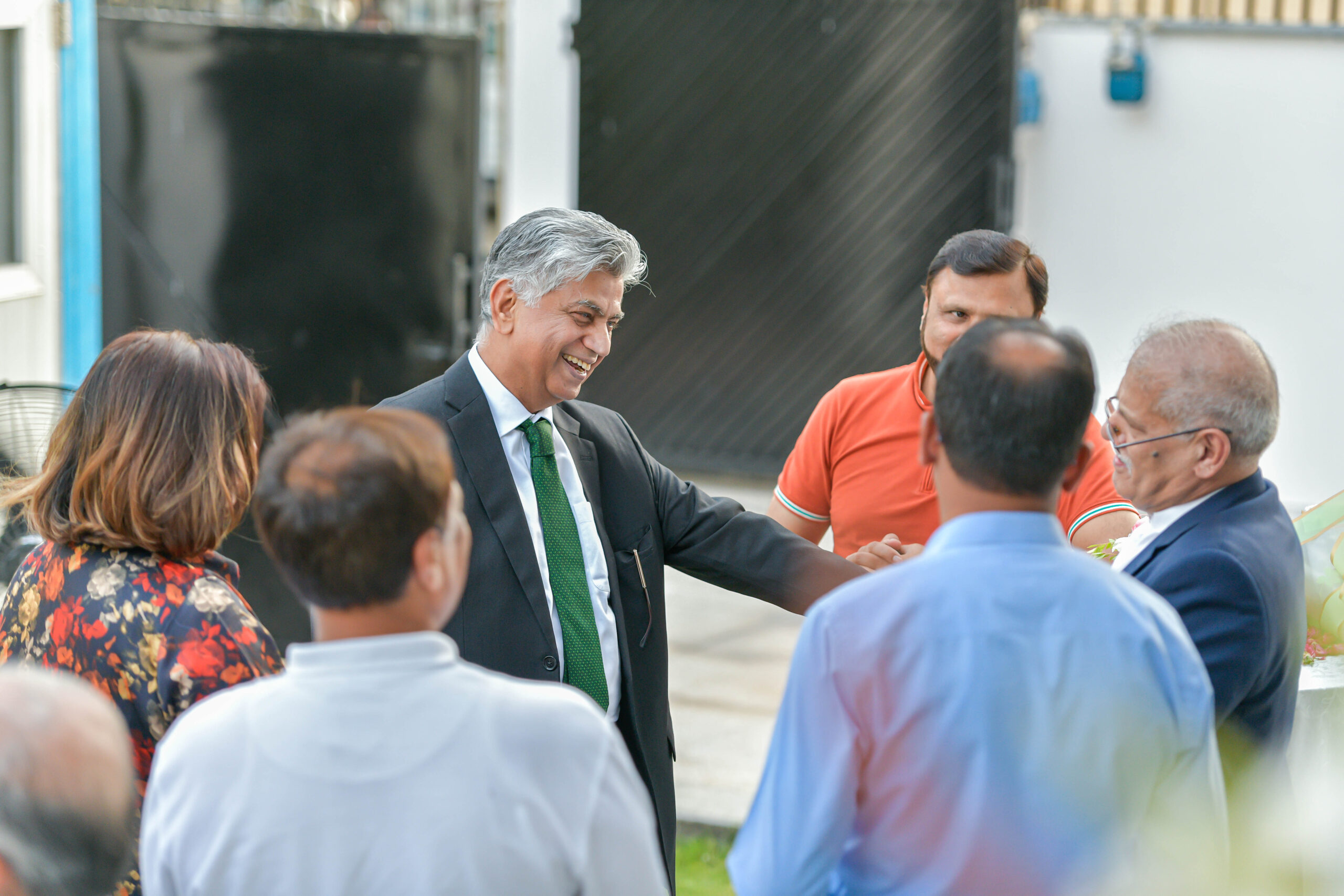
Mohsin Leghari, former Punjab Irregation and Finance Minister and climate voice, gave a strong warning on water and food insecurity: “Pakistan’s rural communities are under siege due to climate change-induced challenges. We face a water emergency that threatens both human survival and economic stability. FGP’s role in driving sustainable, smart agricultural practices and climate awareness can no longer be optional — it is essential.”
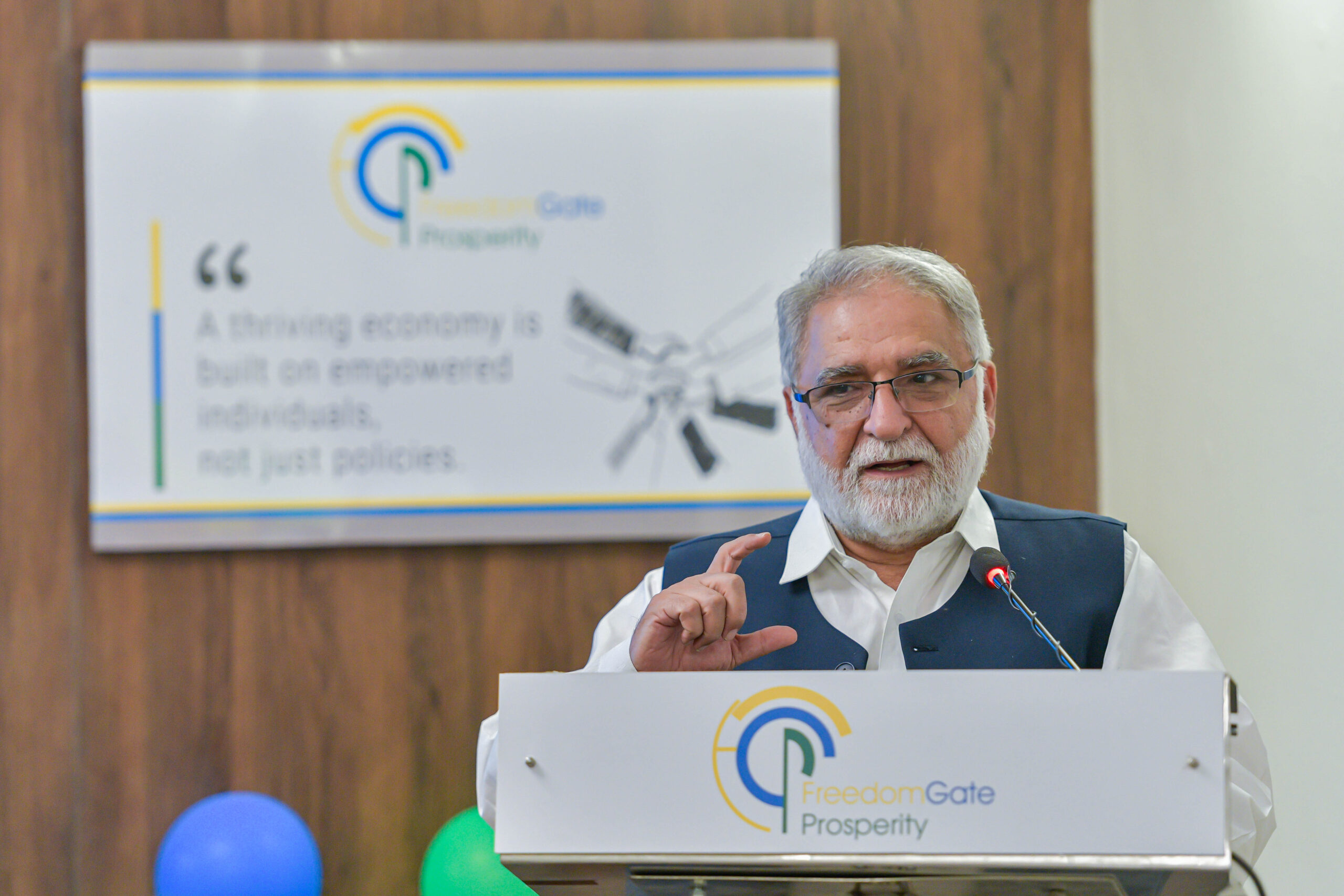
Dr Faiz Muhammad Kakar, former Health Minister Balochistan and Chairperson of FGP’s Board, added an important global-local perspective and said, “FGP is built on a vision that aligns with global development frameworks — but with solutions tailored to local contexts. This balance is its strength, and it will set an example for rights-based, context-specific change.”
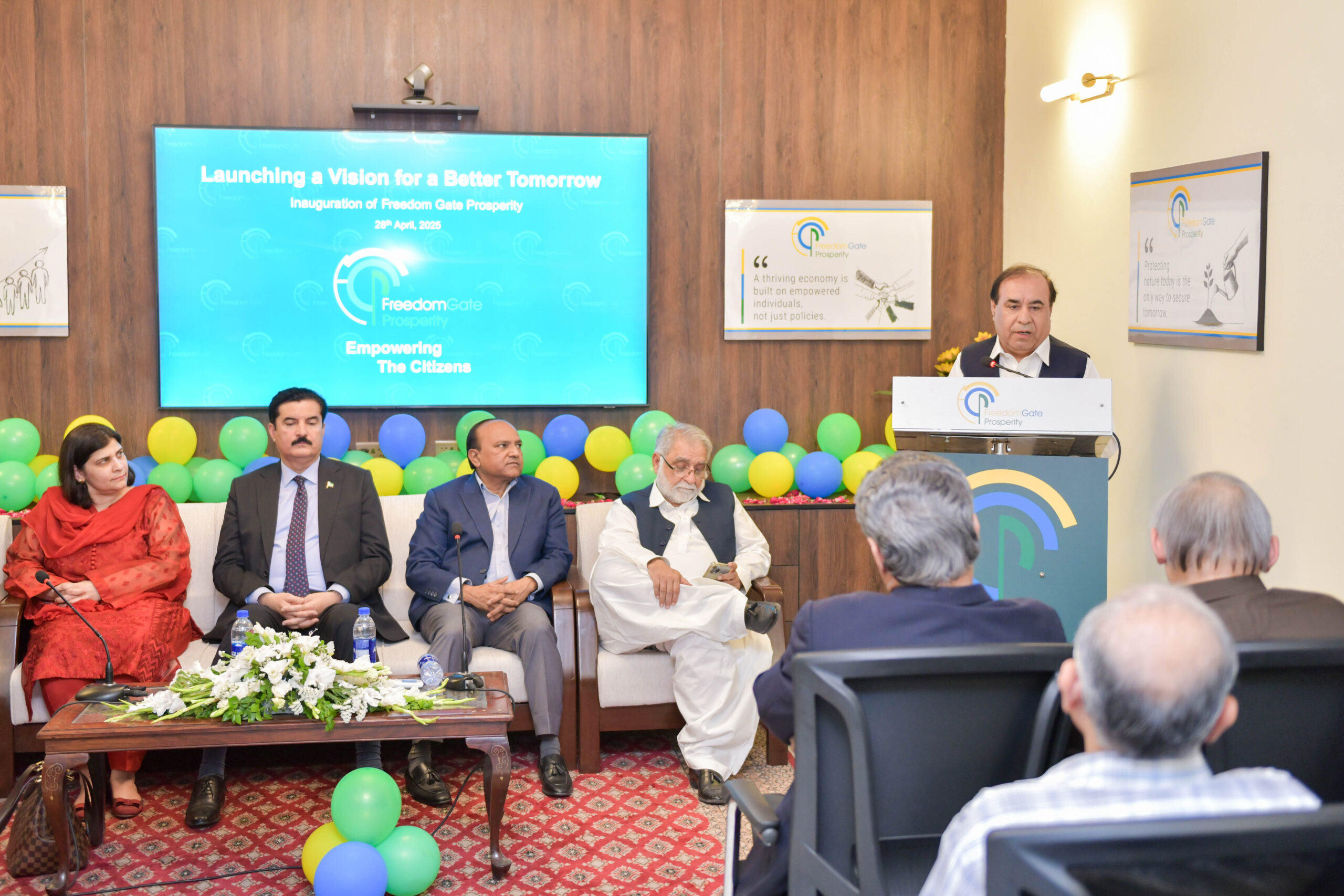
Gulmina Bilal, Chairperson NAVTTC, lauded the initiative for its courage and clarity:
“This is a daring initiative that’s bound to bring real social change. Investing in people, in their skills and voices, will transform not just lives but mindsets.”
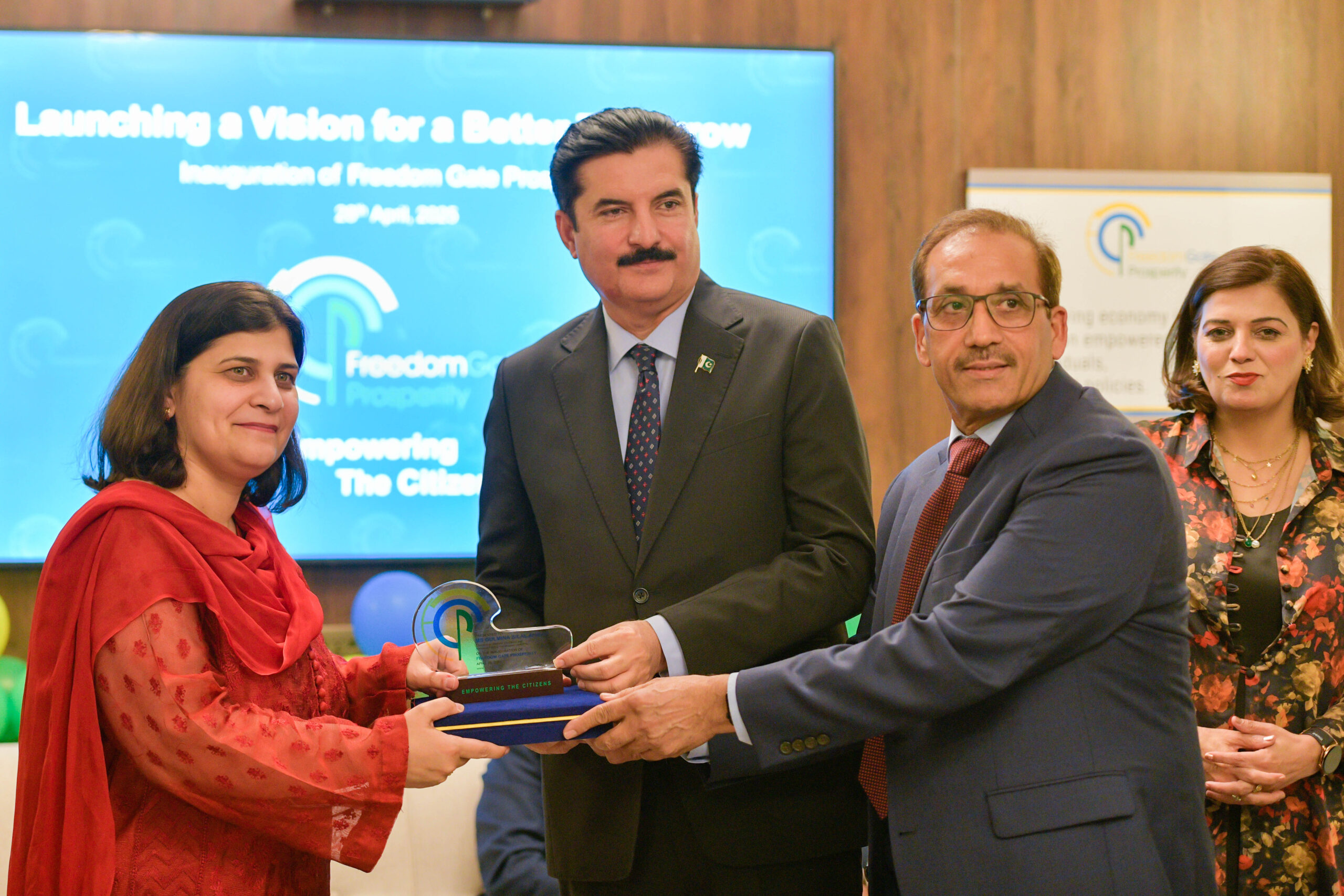
Anthony Naveed, Deputy Speaker Sindh Assembly, called FGP a “platform of promise”:
“FGP will bring real change by promoting inclusive economic development — where no one is left behind due to their gender, religion, disability, or income level. That’s the kind of development we need.”
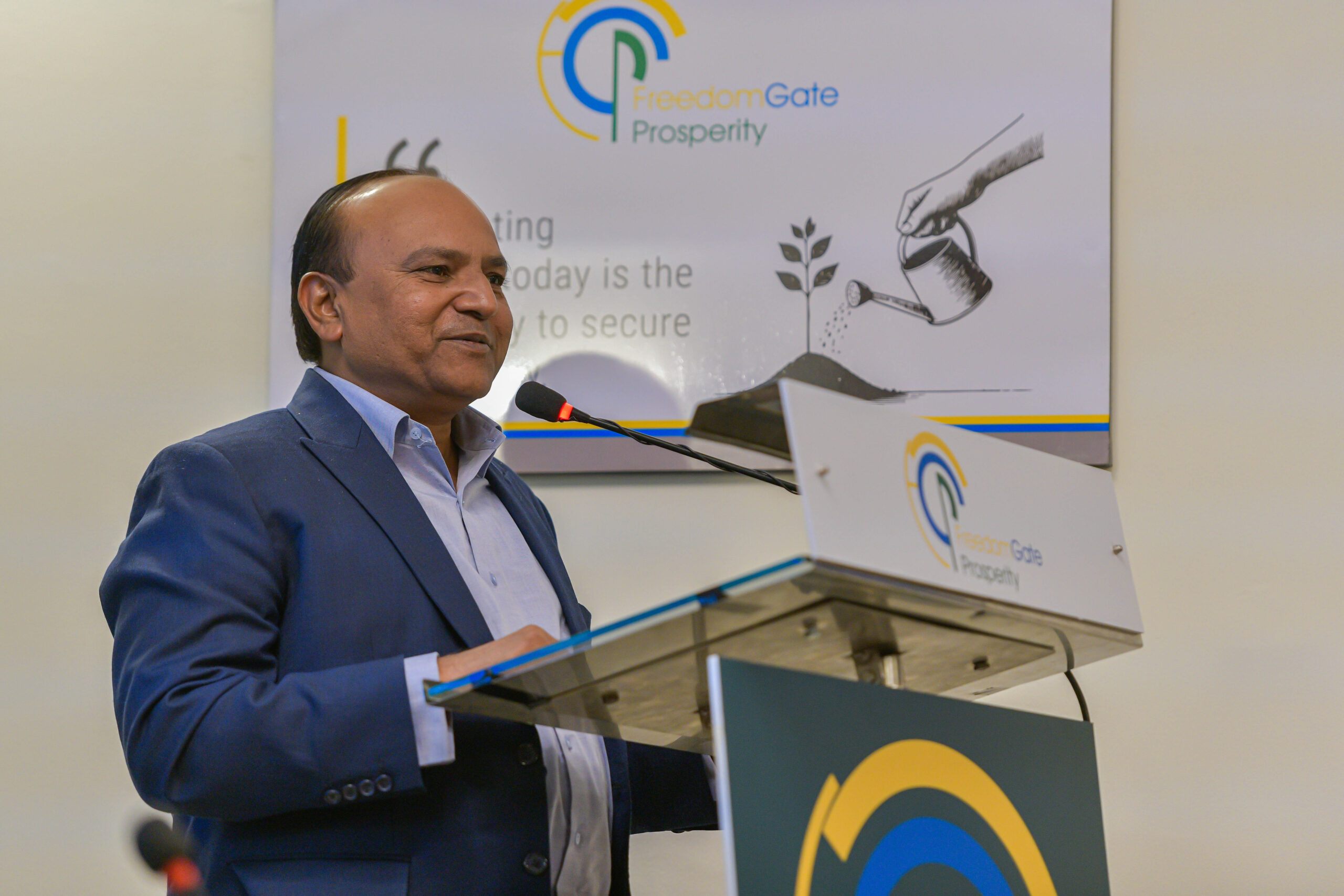
The sentiment was echoed by former Education Minister Mian Imran Masood, former KP Caretaker Minister Adnan Jalil, and civic educator Zafarullah Khan, who all described FGP as the missing link in Pakistan’s development discourse — a force for integration, accountability, and grassroots leadership.
FGP Board Director, Urooj Raza Sayyami described it as a much-needed initiative that would lead climate change and economic discourse to solution-based dialogue and agenda setting. Gul Farina, FGP Board Director, said that this newly launched organization is a potential game changer with the ability to reshape Pakistan’s social contract.
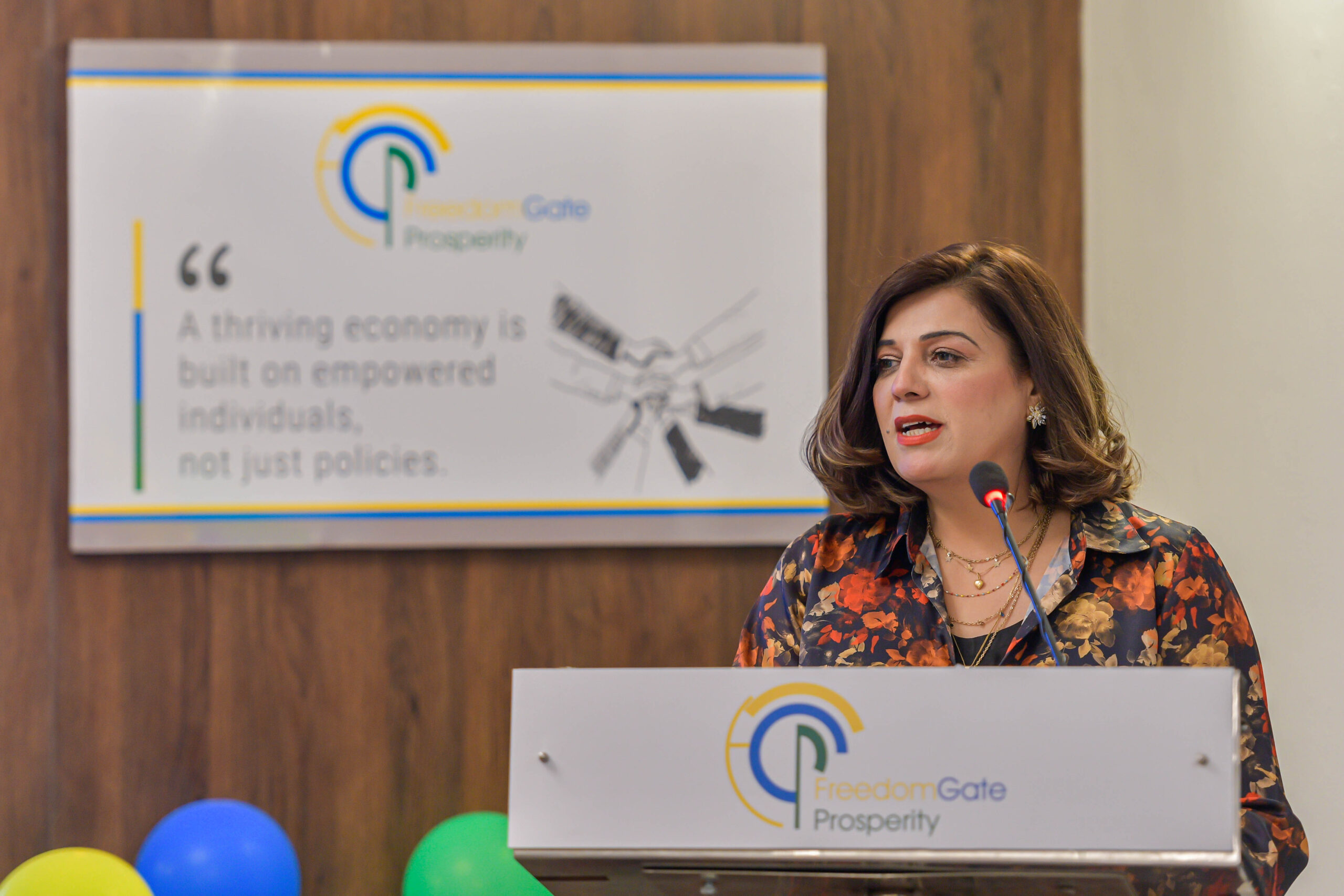
The diversity of themes woven into FGP’s vision — from climate resilience and food security to inclusive governance and digital innovation — makes it a uniquely relevant actor in today’s Pakistan.
With climate change threatening livelihoods, and socio-economic divides growing deeper, FGP steps in as a bridge-builder: one that connects policy with people, vision with grassroots action, and urgency with dignity.
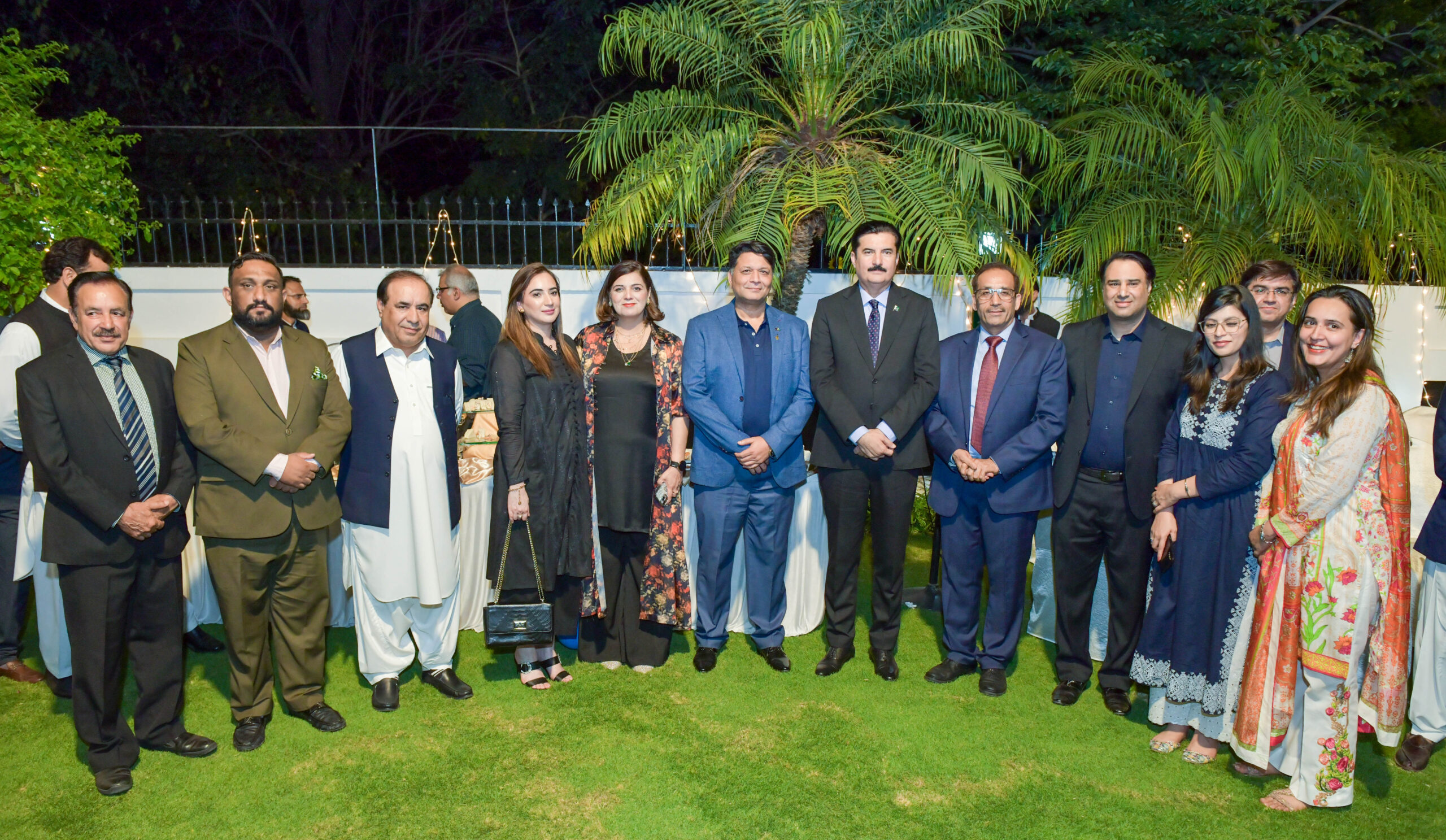
Importantly, the organization’s name, Freedom Gate Prosperity, isn’t just symbolic — it’s aspirational. It suggests liberation from exclusion, a gateway to equity, and a model of prosperity rooted in inclusive economic development and prosperity.
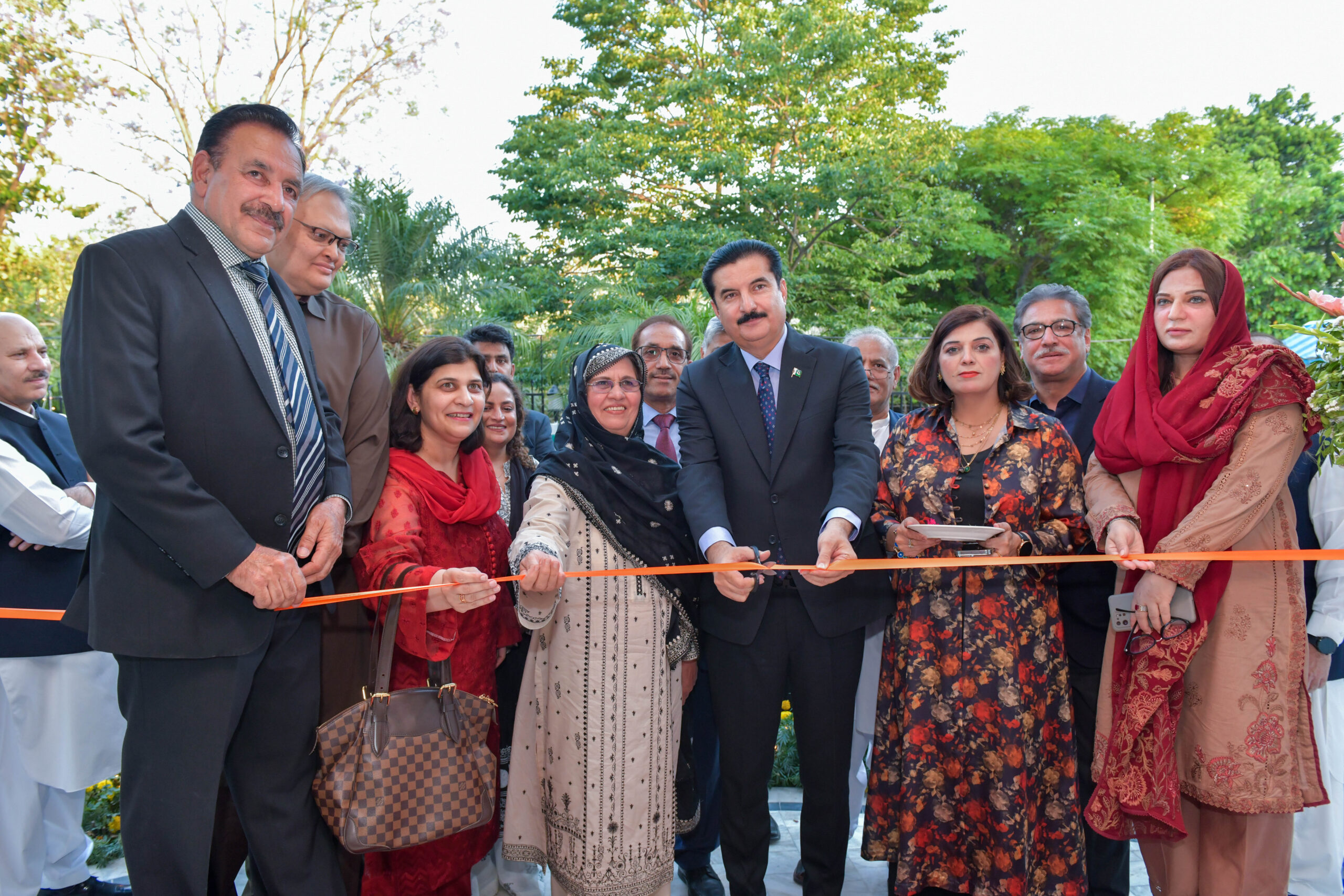
With the launch of its website (www.fgp.org.pk) and a roadmap focused on rights-based, community-anchored programming, FGP is already charting its course — one that may well inspire a new development narrative for Pakistan. The launch wasn’t merely ceremonial — it was electric with hope. There was no rhetoric, only resolve. No promises, only plans. In a country often stuck in cycles of donor-dependency and disconnected policymaking, FGP signals a refreshing departure — one that chooses participation over prescription, and potential over pity.

